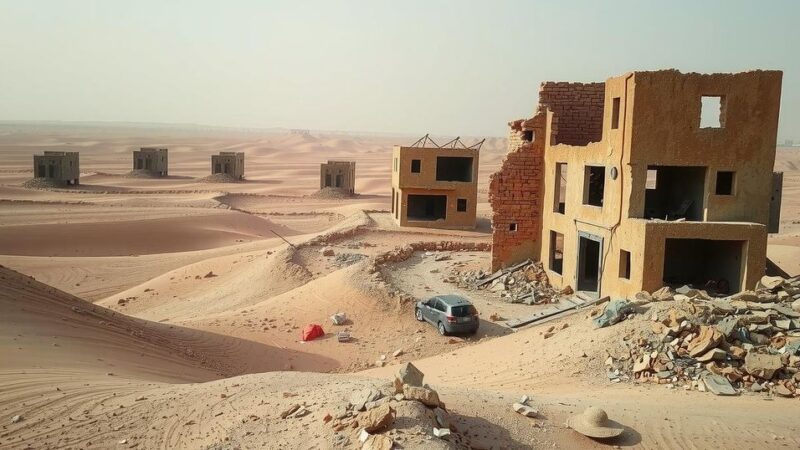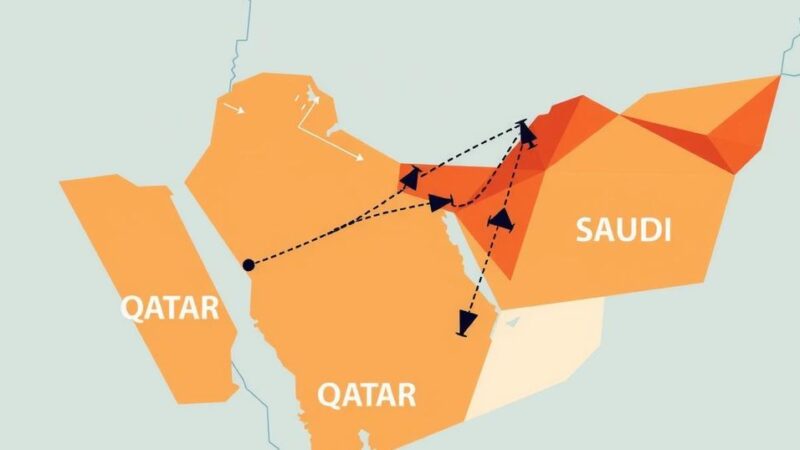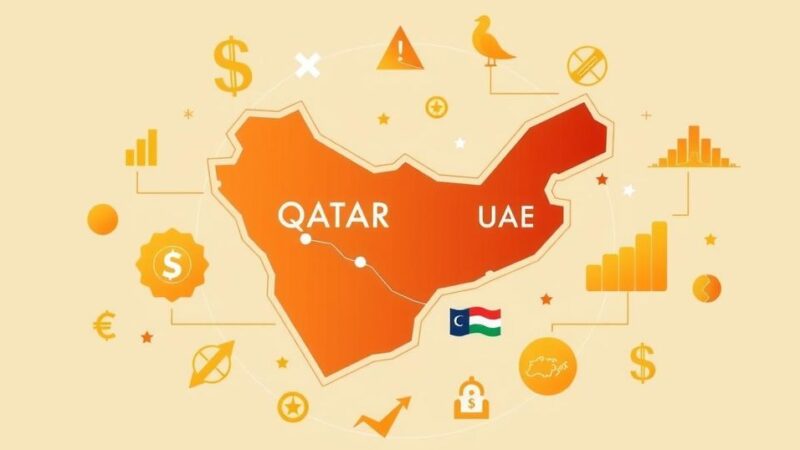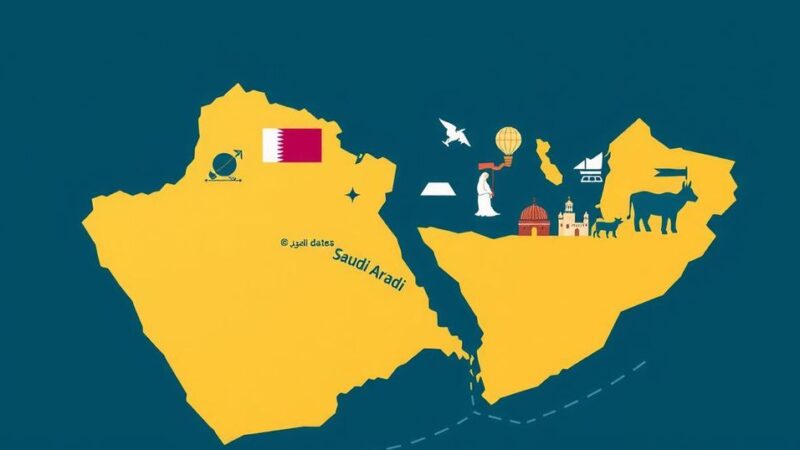Felix Tshisekedi and Paul Kagame recently met in Qatar to discuss the security crisis in eastern DRC, where Rwanda is accused of supporting the M23 rebels. The meeting, mediated by Qatar’s emir, resulted in a mutual commitment to a ceasefire and the urgency for direct political dialogue. The context includes significant military advances by M23 and external sanctions, complicating peace efforts.
On Tuesday, Felix Tshisekedi, the President of the Democratic Republic of the Congo (DRC), met with Paul Kagame, the President of Rwanda, in Qatar. The meeting, mediated by the emir of Qatar, was convened to address the ongoing security crisis in eastern DRC. DRC accuses Rwanda of supporting the M23 rebel group, which has captured extensive territory in the provinces of South and North Kivu, a claim supported by several United Nations reports, although denied by Kigali.
This meeting reflects several prior efforts by regional organizations to facilitate dialogue between the two leaders. The discussions commenced at 4 PM in Doha, lasting approximately 45 minutes and were characterized as cordial, in part due to the emir’s involvement. This was not the first attempt to gather them, as a previous planned meeting in January 2023 was cancelled just before it was to occur, emphasizing the complexity of the diplomatic situation.
According to Tresor Kibangula from the Ebuteli Institute for Political Analysis, external pressures and sanctions are influencing Kagame’s position, while Tshisekedi is now open to negotiations with the M23, a shift from his earlier stance. The dynamic has evolved following the M23’s control of Goma and Bukavu, prompting a reassessment of strategies by both governments.
Following their discussions, both presidents underscored their commitment to achieving a ceasefire, which aligned with agreements made at a recent African summit. A source close to the Congolese presidency highlighted that the meeting was kept confidential until Tshisekedi’s return to Kinshasa. The leaders expressed the necessity of immediate and unconditional ceasefire declarations to advance the peace process.
The Rwandan presidency later confirmed the need for “direct political dialogue” to address the underlying issues fueling the conflict in eastern DRC. Kagame noted that collaboration among all parties could expedite progress. An immediate ceasefire was reportedly agreed upon, with further implementation details to be established in subsequent days.
Amid these developments, Angola announced the cancellation of peace talks after the M23 withdrew unexpectedly. The M23 accused international entities, including the European Union, of undermining peace efforts through sanctions. The severity of the EU sanctions has been criticized for hampering direct dialogue and progress toward peace.
Notably, the M23 claims to protect the rights of Congolese Tutsis, and since January, has rapidly accumulated control, causing significant casualties—over 7,000 deaths reported. A UN report indicated Rwanda’s substantial military involvement with the M23, although Rwanda refutes claims of direct military support, citing its own national security concerns regarding the FDLR group, which is connected to the Rwandan genocide.
The last engagement between the Congolese government and the M23 occurred in 2013, indicating a long-standing and unresolved tension in the region.
The recent meeting between President Tshisekedi of the DRC and President Kagame of Rwanda in Qatar reflects significant diplomatic efforts to address the ongoing crisis in eastern DRC. Their commitment to a ceasefire and the initiation of direct political dialogue indicates a potential pathway towards peace, albeit amidst complicated regional dynamics and external pressures. The situation remains precarious, necessitating continued engagement and collaboration among regional leaders and stakeholders.
Original Source: www.rfi.fr






